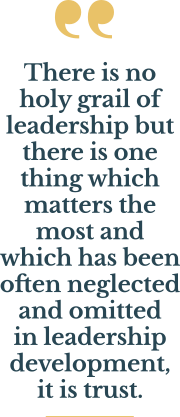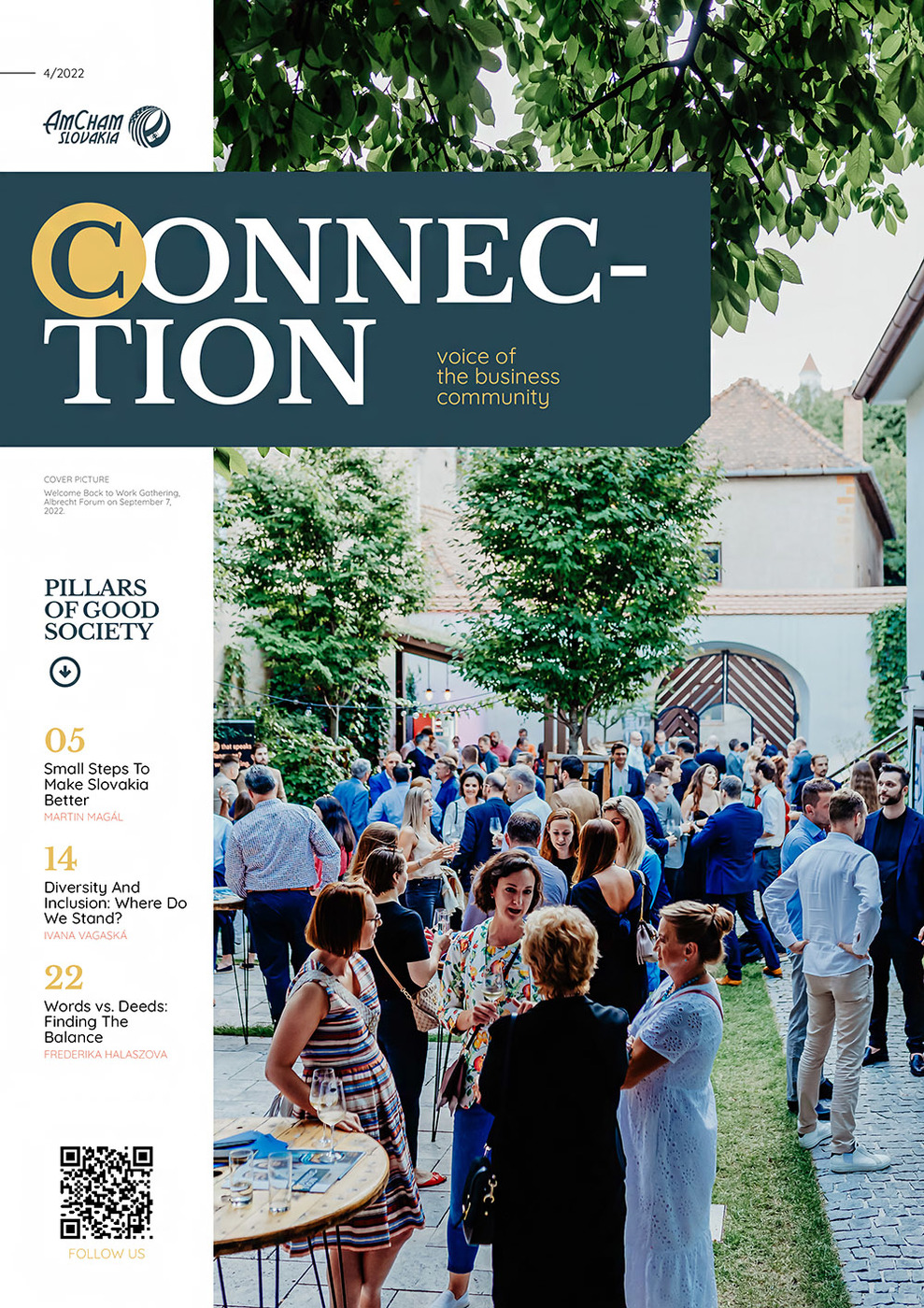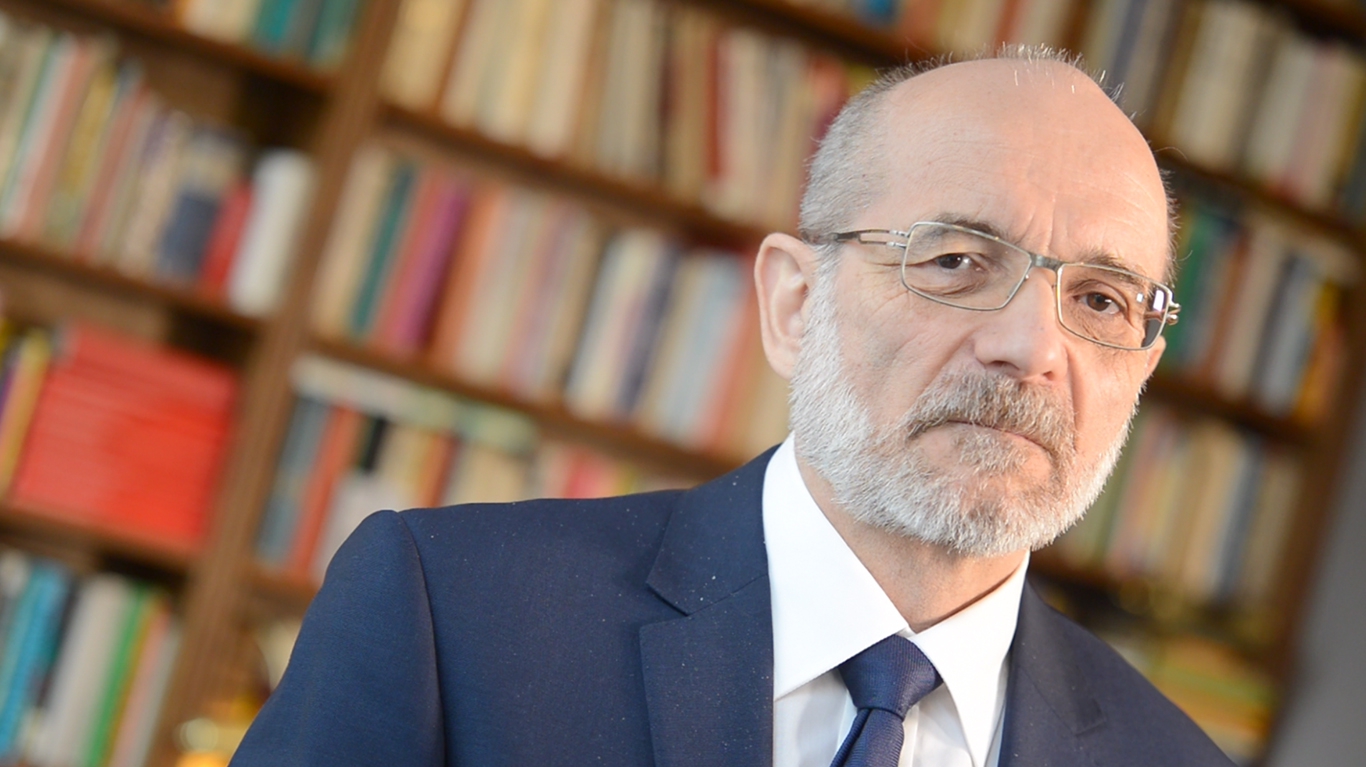However, after a few years many have disappeared and new ones have arrived. A good example are three articles published in Harvard Business Review in the early 1990s which were considered as being “seminal and influential” at the time: The Core Competence of the Corporation (C.K. Prahalad and G. Hamel), Re-engineering Work: Don’t Automate, Obliterate (M. Hammer), and The Balanced Scorecard - Measures That Drive Performance (R.S. Kaplan and D.P. Norton).
If you are over 60 you have probably heard about all three concepts and maybe were part of an initiative trying to implement at least one of them. You probably experienced results which were far below expectations. If you are below 40 it would be wasting your time to deal deeply with the topics. Being informed what these concepts are about and cherry picking would be enough.
There is no holy grail of leadership but there is one thing which matters the most and which has been often neglected and omitted in leadership development, it is trust. According to Merriam-Webster, trust is “assured reliance on the character, ability, strength, or truth of someone or something”.
Trust is difficult to develop but there are ways how it can be gained as in ideas based on the book The Trusted Executive by John Blakey. We are privileged to know John personally and use his concept in our consulting work.
There are three pillars and nine leadership habits that inspire trust. The three pillars are: Ability, Integrity, Benevolence.
- The Habits of Ability are: Choosing to deliver, Choosing to coach, and Choosing to be consistent.
- The Habits of Integrity are: Choosing to be honest, Choosing to be open, Choosing to be humble.
- The Habits of Benevolence are: Choosing to evangelize, Choosing to be brave and Choosing to be kind.;
How to develop trust
One of the reasons why leadership development courses fail is poor implementation of newly acquired skills/competencies. No manager operates in the middle of nowhere. There are peers, subordinates, supervisors who interact and influence each other all the time. Successful implementation of any newly acquired habit requires close cooperation with all the people whom managers influence and are influenced by. All people around you need to have strong feelings that habits you are developing are not just more hype.
If you would like to avoid poor implementation of your developmental goals, incorporate an open communication culture in your team. Ask for and provide honest feedback, discuss regularly about what we did well and what we could have done better. Don’t blame, shame or be judgmental about people. Inspiration can be found in Management 3.0. If you are a real enthusiast, read books or attend 101 basic courses on Transactional Analysis. TA is a theory of personality, a system for understanding human behavior and a social psychology. A strong feature of TA is that you can change behavior without external intervention, training and coaching. Just knowing the principles is often enough.
Below are few a recommendations to help with habit development.
We like the child’s riddle. Five frogs are sitting on a log. Four decide to jump off. How many are left? Answer: five. Why? Because deciding and doing is not the same thing. In Slovak culture we say “I will try” but we often decide and then “try to implement” and we are surprised when nothing happens. Choosing to deliver is mainly about focusing less on deciding and trying more.
There are plenty of “Coaching for leaders” courses. Some of them are designed for managers to become a “part-time-on-the-job” coach and are highly skilled in using one of several coaching frameworks (e.g. GROW, ORACLE, FUEL). Frameworks are useful but should be applied after a manager develops four basic coaching skills: speaking less, listening more, giving fewer orders and asking more questions. After developing these four skills, move to using a preferred framework.

Honesty is the most appreciated manager´s competence across all cultures. However, be aware that extreme rigid honesty anytime and anywhere annoys people. People will more easily forgive “a white lie” or turn a blind eye than accept extreme rigidity in honesty. On the other hand, you should never behave dishonestly.
Maybe the habit which most managers have a problem with developing is choosing to be humble. You can start with a simple but an effective exercise developing emotional intelligence recommended by the late coaching guru, Sir John Whitmore.
Think for a while about a person who you felt safe with when you were a small child. Feeling safe means you weren’t punished for childish capers, that person always had time for you, allowed you to do things which your parent did not allow, never shouted at you, etc. In many cultures it is a grandmother. When you are in a situation which can ignite your sharp and severe reaction (which we often regret later), or when you would like to control reactions driven by your ego, ask yourself, how would that person I felt safe with react? You will be surprised how this simple exercise increases your humility.
Trust is a very delicate, emotional brain state. It takes a long time to build but you can lose it in minutes. Keep in mind, what the Latin writer Publilius Syrus said more than two thousand years ago: “One who has lost trust cannot lose more.”
Peter Benkovič, Partner, Maxman Consultants
Dáša Spillerová, Partner, ADDA Consultants




Follow us